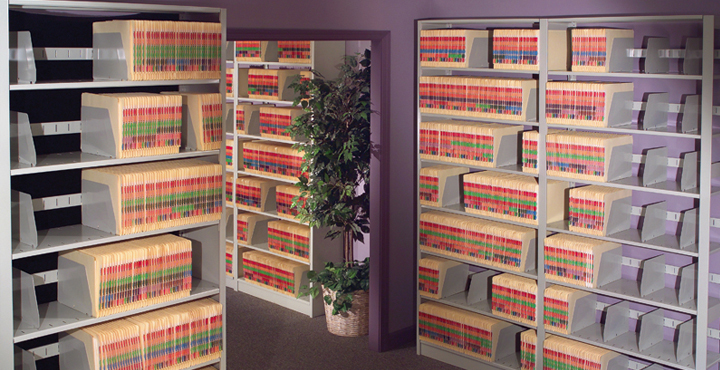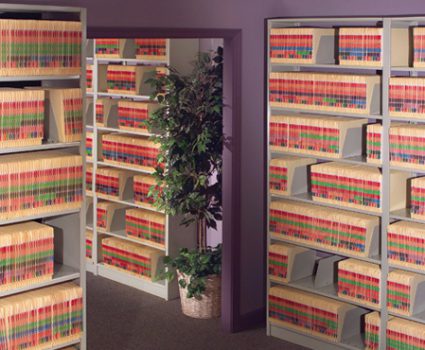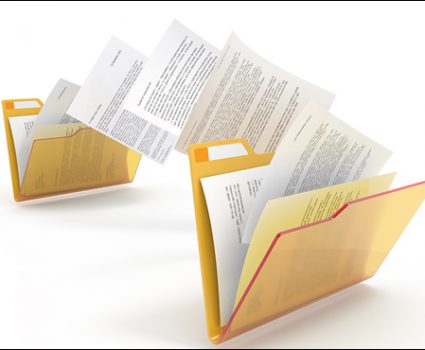
To Centralize or Not to Centralize?
It’s one of the most common issues in records management. And while every storage situation is unique, a file centralization project can bring tremendous return on investment. How? By introducing these four key advantages outlined in this blog post.
1. Business Process Efficiency
Centralized filing can alleviate the problem of making misinformed decisions by making file content more reliable.
By consolidating all records related to a given activity, transaction or process into one central file, every user of that file is provided with a complete picture on which to base business decisions and perform their own transactions.
2. Space Savings
High efficiency storage solutions can allow an organization to store three times the amount of records of some traditional equipment and supplies. But the benefits of high-density office shelving can’t be fully realized as long as key file collections are scattered across individual offices.
3. Security
A dedicated file storage area can be equipped with intrusion detection, monitoring systems, card access locks, and other security controls which are often deemed unnecessary or unaffordable for single offices, let alone open concept work stations. Different file collections may be stored in separate locking cabinets based on who can or should be able to access those files.
4. Legislative Compliance
Centralized control means improved compliance with the many statutes and regulations impacting records management, such as records retention and corporate accountability requirements, as well as privacy legislation.
If your organization is looking to advance in any of those areas, a centralized filing system could help meet those goals.
Next Steps
- For details on how to implement a centralized filing solution, download Strength In Numbers – Strategies in Centralized Filing White Paper.
- Learn more about Space Optimization Solutions.
- Talk to a TAB representative about how we can help make your records management more efficient.





